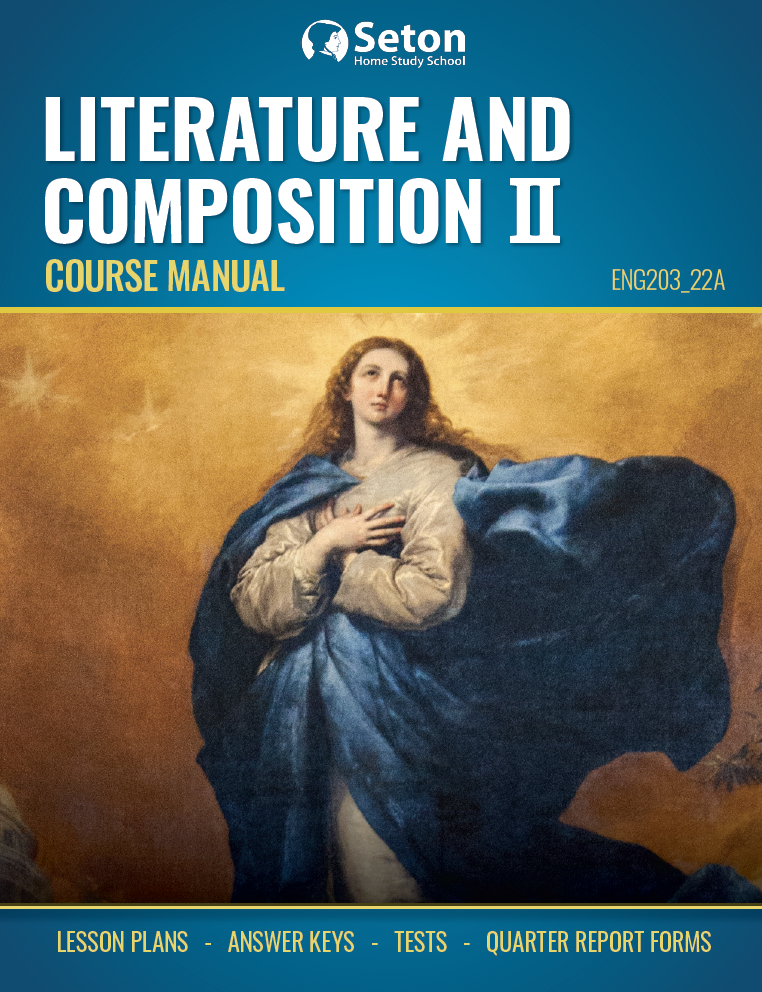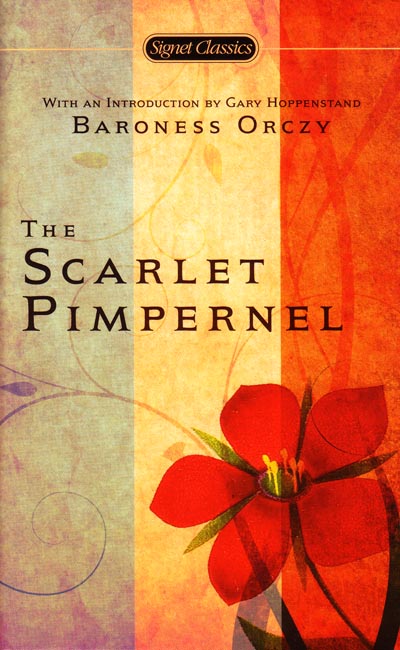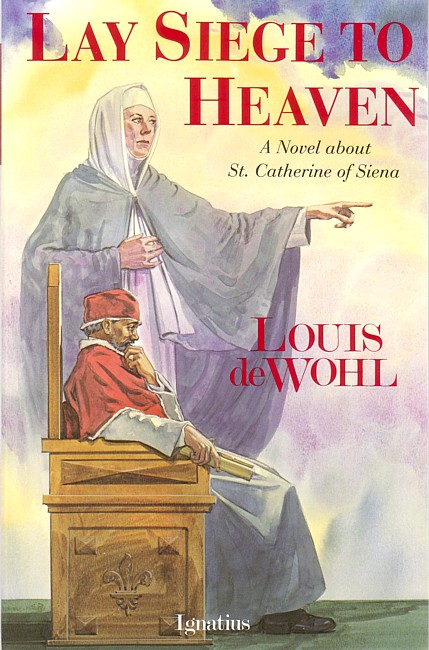Students study novels and poetry and delve into the complexities of each. The second and third quarters are largely devoted to the study of aspects of poetry, such as figurative language and sound devices. Novels are studied in the first, second, and fourth quarters, examining characterization, conflict, and theme. Studying different components of good literature, the student forms a greater appreciation for the classics.
Additional Quarterly Book Analysis List
One book from each list below is also part of this course. We will automatically send the books in bold unless you choose one of the other titles. Based on our experience, students who read the books in bold do better on their analyses and tend to enjoy the books more.
1st Quarter:
The Scarlet Pimpernel by Baroness Orczy
Captain Blood by Rafael Sabatini
The Black Tulip by Alexandre Dumas
2nd Quarter:
The Prince and the Pauper by Mark Twain
My Antonia by Willa Cather (for mature readers)
Lay Siege to Heaven [St. Catherine of Siena] by Louis de Wohl
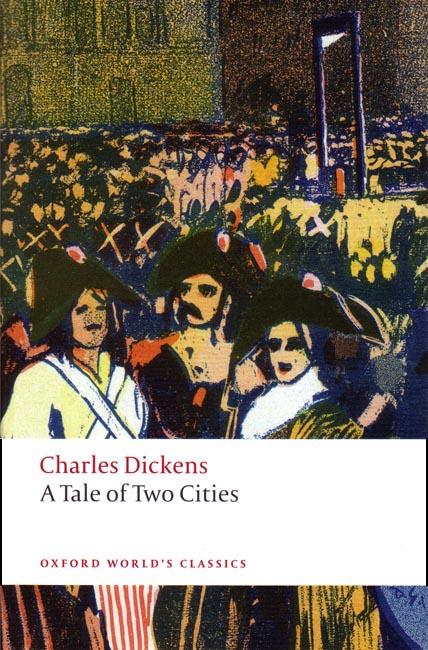

The Scarlet Pimpernel
by Baroness Orczy
The year is 1792. The French Revolution, driven to excess by its own triumph, has turned into a reign of terror. Daily, tumbrels roll over the cobbled streets of Paris bearing new victims to the insatiable Madame la Guillotine….Thus the stage is set for one of the most enthralling novels of historical adventure ever written. The mysterious figure known as the Scarlet Pimpernel, sworn to rescue helpless men, women, and children from their doom; his implacable foe, the French agent Chauvelin, relentlessly hunting him down; and lovely Marguerite Blakeney, a beautiful French exile married to an English lord and caught in a terrible conflict of loyalties—all play their parts in a suspenseful tale that ranges from the squalid slums of Paris to the aristocratic salons of London, from intrigue on a great English country estate to the final denouement on the cliffs of the French coast.
(This book is included by default.)
Captain Blood
by Rafael Sabatini
Dr. Peter Blood, an English doctor, is taken prisoner, pronounced guilty of treason, and sent to a terrible island, Barbados, where many are tortured and starved. Despite overwhelming difficulties, and the hatred of the overseer of the prison, Dr. Blood is able to escape. The escape is quite spectacular as Dr. Blood and the prisoners overtake an attack on Barbados by Spanish pirates.
This is a fast-paced novel! However, even though the emphasis is on action, the author takes the time to describe the thoughts of the characters, especially Captain Blood. Dr. Blood did not intend to become a captain or a pirate but because he was considered a criminal, along with the other prisoners, they were forced to live the pirate life.
The book is filled with sea battles and sword fights, gallantry and betrayal, action, suspense, missed opportunities, irony, and romance.
The Black Tulip
by Alexandre Dumas
A prize of 100,000 guilders awaits the gardener who can produce a black tulip, a rich reward that incites a bitter competition in 17th-century Holland. Cornelius von Baerle, a gifted and passionate florist, has dedicated himself to cultivating the elusive flower. But a ruthless rival, capitalizing on accusations that led to the assassination of Cornelius’s godfather, falsely accuses the young horticulturist of treason. Sentenced to life imprisonment, Cornelius conspires with his jailer’s daughter to grow the black tulip in secret.
Alexandre Dumas sets his captivating tale in the 1670s, a generation after Holland was gripped by the economic madness of Tulip mania and shortly after the mob lynching of a pair of Dutch statesmen. His fictional treatment of these historic events forms a timeless political allegory in which the rare flower represents the triumph of justice, tolerance, and true love over greed, jealousy, and obsession.
(32 chapters and a conclusion chapter.)
The Prince and the Pauper
by Mark Twain
Rich with surprise and hilarious adventure, The Prince and the Pauper is a delightful satire of England’s romantic past and a joyful boyhood romp filled with the same tongue-in-cheek irony that sparked the best of Mark Twain’s tall tales. Two boys, one an urchin from London’s filthy lanes, the other a prince born in a lavish palace, unwittingly trade identities. Thus a bedraggled “Prince of Poverty” discovers that his private dreams have all come true—while a pampered Prince of Wales finds himself tossed into a rough-and-tumble world of squalid beggars and villainous thieves.
(This book is included by default.)
My Antonia
by Willa Cather
When her family emigrates from Bohemia to Black Hawk, Nebraska, Antonia finds no white-framed farmhouse of snug barn. Instead, the cultured Shimerda family find themselves huddled into a primitive sod house buffeted by the unceasing prairie winds. Uncompromising in her rich and powerful nature, the beautiful Antonia adapts to embody the elemental spirit of this frontier, despite the events that nearly destroy her family and leave her abandoned. Willa Cather’s lush descriptions of the rolling Nebraska grasslands interweave with the warm tale of a woman coming of age in a chronicle of America’s past.
Lay Siege to Heaven
by Louis de Wohl
The daughter of a prosperous dyer in fourteenth-century Siena, Catherine never forgot the mystical experience of her extreme youth; at that time she devoted herself to Christ. It was, however, a shock to her family when, refusing marriage, she insisted on giving her life totally to God.
Her career was extraordinary. In that confused and dangerous era of history, the Pope was living at Avignon: Catherine persuaded him to return to Rome. The City-States of Italy were at war with each other: Catherine subdued them. There was pestilence: Catherine served and saved. She performed miracles, she received the stigmata, she drew about her a crowd of devoted men and women.
(35 chapters and an epilogue chapter.)
Sample Online Videos

Full Enrollment
Learn More
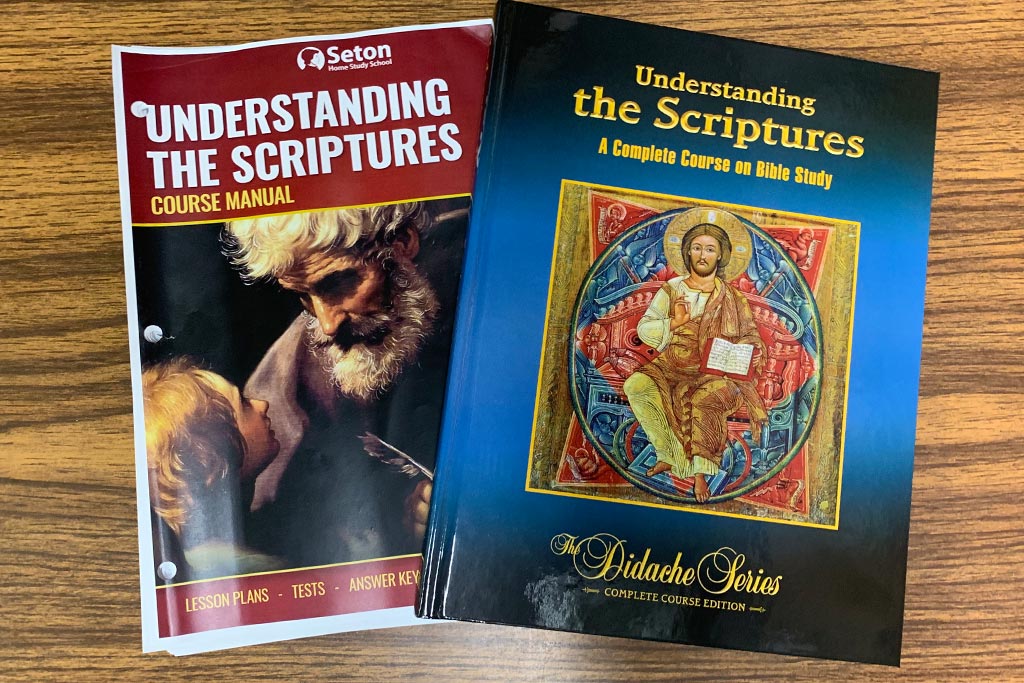
Single Course Enrollment
Learn More

Book Sales
Learn More

